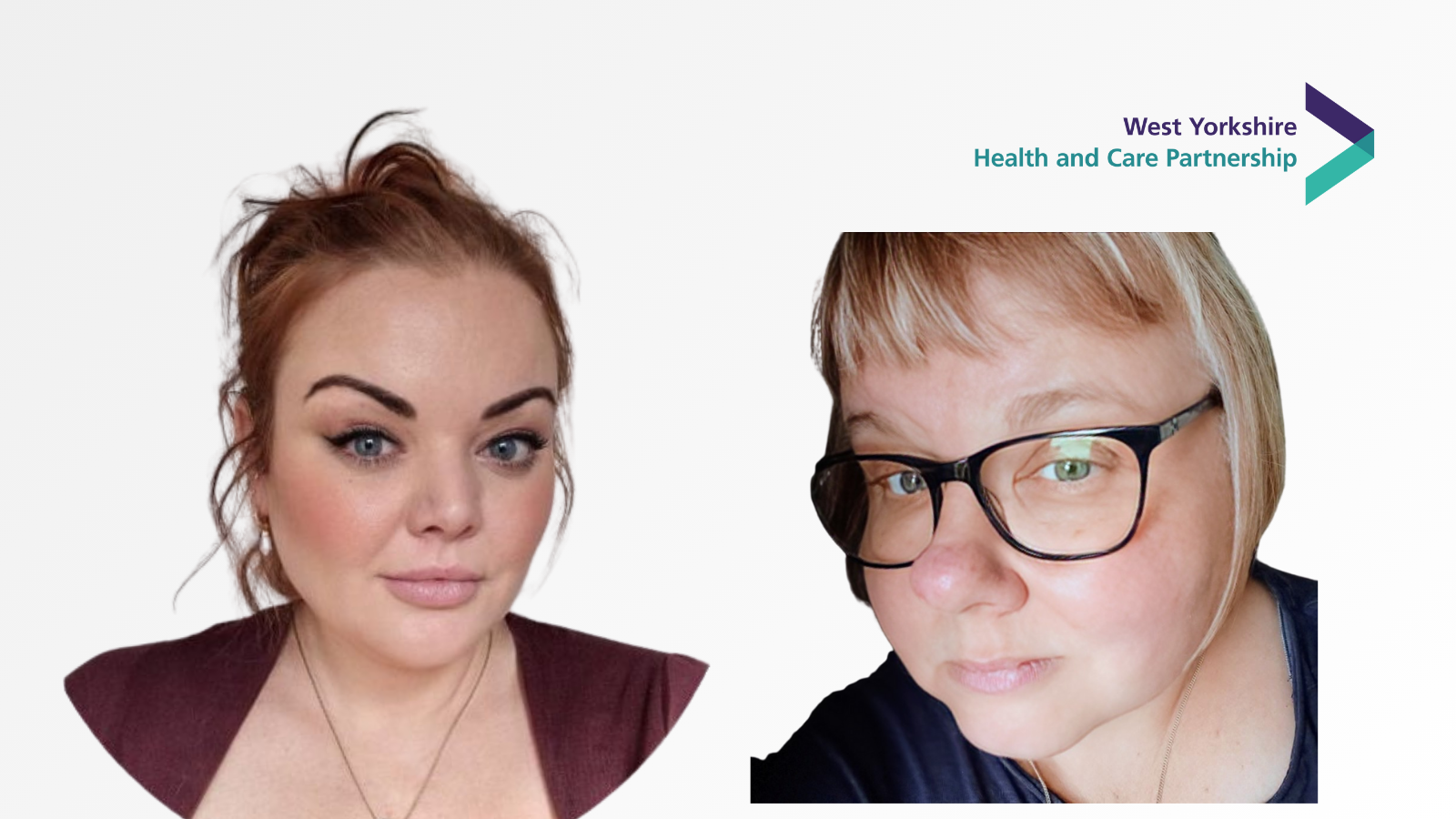Posted on: 24 July 2025
 Celebrating Disability Pride Month: Embracing Intersectionality, Allyship, and Leading with Lived Experience
Celebrating Disability Pride Month: Embracing Intersectionality, Allyship, and Leading with Lived Experience
Louise McKelvey Head of Workforce Programmes, West Yorkshire ICB (Chair) and Angwen Vickers Senior Equality, Diversity and Inclusion Officer, Calderdale, Kirklees, Wakefield (Deputy Chair), ICB Staff Disability and Long-Term Conditions (DLTC) Network
Disability Pride Month, celebrated each July, is a time to honour the history, achievements, and lived experiences of disabled people. It’s also an opportunity to challenge stigma, ableism, and exclusion, whilst celebrating the strength we draw from our diverse experiences and the power of inclusive leadership.
As Chair and Deputy Chair of the ICB Staff Disability and Long-Term Conditions Network, we’re proud of the work our Network does to help shape a workplace where colleagues feel seen, heard, supported, and empowered.
We’ve worked hard to raise awareness of inclusion, participating in recruitment panels, championing accessibility, and working in allyship with other Staff Networks to support colleagues, particularly through times of organisational change.
Disabled colleagues and those with long-term conditions contribute immense value to the workplace. Lived experience brings resilience, creativity, and new ways of thinking that help teams grow and innovate. Yet, many staff still don’t feel safe sharing their disability, often due to fear of bias, discrimination, or being treated differently.
It’s important to recognise that over 17.6% of West Yorkshire’s population are disabled, and more than 16.1 million people across the UK live with a disability. As we age, the likelihood of acquiring a disability increases, making this not a minority issue, but a workforce-wide reality.
Our staff survey highlights the gap in disability disclosure. While 29% of colleagues identified as disabled in the 2023 survey, only 6.8% were recorded on the Electronic Staff Record (ESR) in 2024. This tells us we still have work to do to ensure staff feel safe, supported, and confident to disclose their disability or long-term condition.
This is why inclusive, compassionate, and trauma-informed leadership matters. Embedding inclusion into everyday practice is essential. Truly inclusive leadership recognises the importance of intersectionality, understanding that our identities and experiences overlap in complex ways. Embracing this diversity helps us create cultures where everyone can thrive, leading to better decisions, stronger representation, and more equitable, compassionate services.
We both have lived experience of disability and long-term conditions, and we see this as a strength, not a barrier.
Louise:
I’m proud to have shared my story as part of the West Yorkshire Neurodiversity Toolkit, a strengths-based resource offering practical guidance to help employers, managers, and colleagues better understand and support neurodivergent people.
Following feedback from our Working Carers Network, and recognising the intersectionality between disability, long-term conditions, and caring responsibilities, the team is now co-producing an additional strand of the toolkit. This new resource supports parents and carers of neurodivergent children and young people, reflecting the complex realities of balancing work and family life.
One of our Network members has chosen to share their own powerful story of managing work and caring responsibilities, shining a light on the hidden struggles, the strength, and resilience required to manage daily life.
“Caring for a child with complex needs, whilst also managing my own neurodivergence and physical health conditions, is incredibly demanding, especially with the constant fluctuations and unpredictability in both our physical and mental needs. Equity is essential. Too often, it feels like I’m fighting just to access the reasonable adjustments and support that allow both of us to navigate life on equal terms. At the same time, I’m emotionally unpacking my own history of being undiagnosed, whilst helping my child come to terms with theirs.
It’s draining and relentless, and yet I still turn up to work and contribute to the fullest, because I care deeply about what I do.
There’s an indescribable joy when my child is regulated, their love is fierce, their laughter infectious, and in the right environment, the connection and fun we share is pure magic. But the reality is complex, and workplaces must understand that behind that resilience is someone constantly managing invisible labour, both at home and at work.”
Angwen:
I’m equally proud to share my experience of disability and it’s helped me in my work in equality, diversity, and inclusion. It has been particularly valuable in helping shape the work I do within our organisation and across the partnership on Accessibility and producing Accessible information and content.
One achievement I’m particularly proud of is the creation of Accessibility Champions within our organisation, and the training and support I’ve provided to partners across the region. If you want to learn more about digital accessibility, I’d encourage you to read my blog: Why Digital Accessibility is Everyone’s Business.
Accessible systems, content, and information aren’t a luxury, they’re a necessity. Without them, disabled people can’t work, access services, pay bills, or fully participate in society.
As digital tools increasingly become part of how we manage health, work, and daily life, accessibility must be built in from the start. As someone who relies on assistive technology, I know firsthand the barriers that arise when systems aren’t designed inclusively. Accessibility isn’t just essential for disabled people; it improves the experience for everyone.
In Summary
Disability Pride Month is a reminder that disability is not a deficit, it’s part of the richness of human diversity. So, let’s continue to build a culture that celebrates this, not just for one month a year, but every single day.

